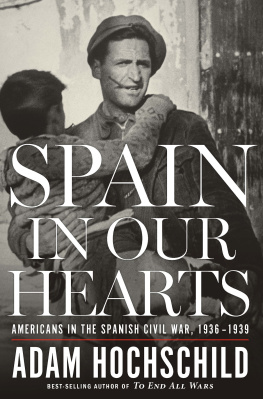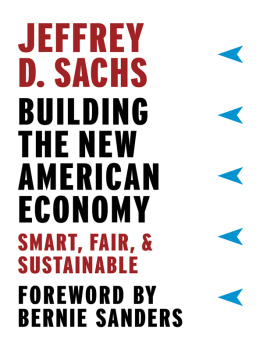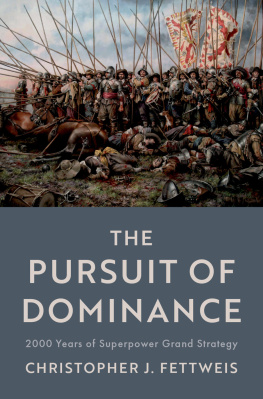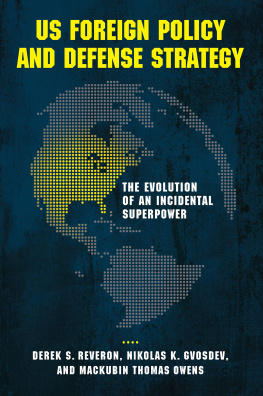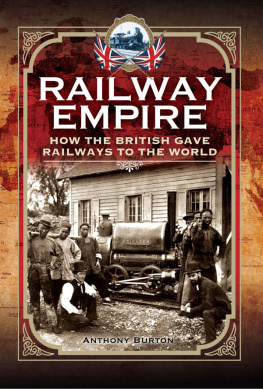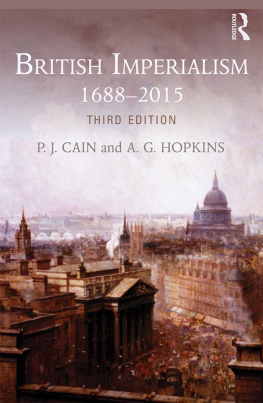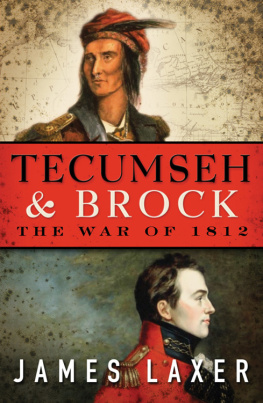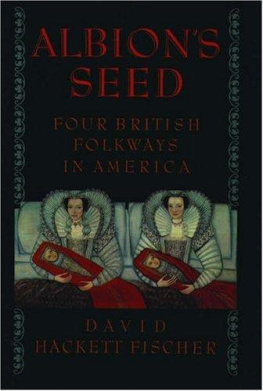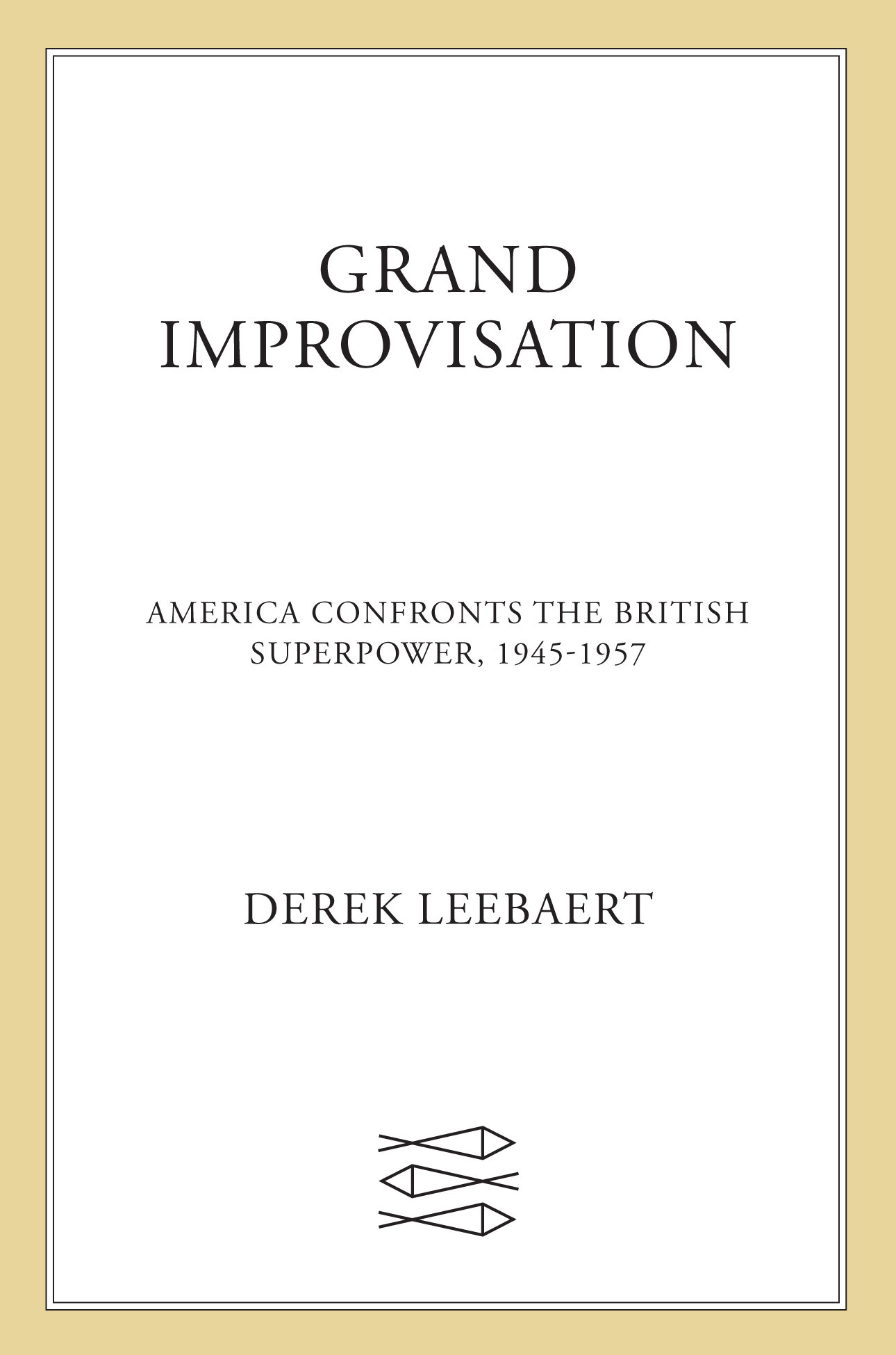Contents
Guide
Pagebreaks of the print version

The author and publisher have provided this e-book to you for your personal use only. You may not make this e-book publicly available in any way. Copyright infringement is against the law. If you believe the copy of this e-book you are reading infringes on the authors copyright, please notify the publisher at: us.macmillanusa.com/piracy.
FOR
Michelle Nyama Kingue
et
Angela Lindsay Kingue
Confirm thy soul in self-control
O beautiful for patriot dream
That sees beyond the years
A MERICA THE B EAUTIFUL ,
K ATHARINE L EE B ATES
A frequently repeated tale about the twentieth century is this: At the end of World War II, the British Empire was too weak and too dispirited to continue as a global imperial power; thus a confidently prosperous, well-armed America assumed leadership of the Westand did so while creating a U.S.-led international order that weve lived with ever since. Today this story is taken for granted. The twentieth century, after all, became the American Century.
But its a myth. Britain, heart of a historic and militarily adroit empire covering a quarter of the worlds land surface, was unlikely to hand on the baton of democracy, liquidate its realms, or retreat from a singular global presenceespecially not in the alleged thousand days after it had played a pivotal role in winning the bloodiest conflict in history. Equally unconvincing is the notion that the United States, a self-contained continental island-state, traditionally fenced off by oceans and high tariffs, should suddenly drop its insularity and transform itself into a world political-military force.
In fact, the British Empire hardly wanted out, and the United States did not willy-nilly become a superpower, let alone possess the unique ability to affect the course of events in the developing world, which remained a largely colonial one.
Theres no doubt that at the end of World War II America was by far the worlds strongest nation, with an atomic monopoly and unprecedented industrial weight. But it was still a resolutely distant superstate, hesitant to take up a commanding political and military position. In the dozen years that followed, it faced a shrewd, high-tech, deeply entrenched, Anglo-Saxon colossus whose war-hardened leaders had no intention of stepping aside or of serving as junior partners to anyone. These men continued to assert their power and even their ascendancy until at least the end of 1956, when the just-reelected administration of Dwight Eisenhower finally avowed a declaration of independence from British influence. It was then that the United States explicitly took over, in the words of its vice president, Richard Nixon, the foreign policy leadership of the free world. Only at that point was Geoffrey Crowther, longtime editor of The Economist , a magazine attentive Americans regarded as the voice of the British establishment, compelled to admit that Britain is no longer a Super-power.
There are few twentieth-century dramas so relevant to the world today. At no time between the aftermath of 1945 and the present have so many aspects of international life been in flux: the rise and retreat of superpowers; shifts in global currency regimes; uncertain mutual defense commitments; and severe doubts among Americans about the value of military primacy in the first place. The roots of todays turmoil spring from this epoch: Europes qualms about U.S. reliability; the destabilization, and re-destabilization, of the Middle East; the making of the enduring tragedy of Americas Vietnam War; the countrys justified fears of other long-term entanglements; and fights against terrorists throughout the world. Moreover, an aggressively nationalistic Russia has returned to its crude Soviet-like behaviors while employing its familiar techniques of hybrid war and possession of the planets second-largest nuclear arsenal. Again North Korea and Iran are world issues, and U.S. policy makers continue to speak of how theyll supposedly shape the future of China.
Currently, in Beijing, strategists are devoting intense effort to modeling the fall of empires. They study the fate of the Soviet Union and what caused the hammer and sickle to be hauled down from over the Kremlin on Christmas Day 1991. But theyre also analyzing the destiny of the far-flung British Empire, which they presume to have been displaced almost overnight by an American onethe days of which are supposedly numbered as well.
For most of the years between 1945 and 1957, it was difficult to tell how the fate of the British Empire might affect America, except on financial matters. When Eisenhower became president in 1953, he acknowledged not only that Britain was dominant in the Middle East, as it was throughout this era, but also that it wielded a veto over U.S. decisions in Southeast Asia. And this was at a time when top U.S. officials believed that Americas biggest post-war difficultyperhaps more than the Soviet threatwas the inability to say no to the British Empire. In effect, serious people in Washington believed that no acceptable foreign policy was available to the United States if it wasnt aligned with its sprawling, problematic ally. Britain maintained the profile and the substance of a superpower; Eisenhower was, for the time being, candid in his awareness that global military ambitions, along with the attendant political involvements, were alien to the United States.
This book offers a new understanding of the world that arose in the years following World War II. Historys largest empire was battling to maintain its standing, while an utterly novel form of global preeminence loomed from across the Atlantic. The outcome shows the changing might of nations, the illusion of trying to mold the destinies of peoples and places unknown, and the risks of attempting to maintain huge political-military edifices on shaky foundations. We see how thoughtful, informed wielders of power reached decisions while feeling besieged, and we find ourselves asking how our country may segue into some new type of its now-familiar stature in the decade ahead.
Leaders in Washington and London rarely grasped how much was out of date in their thinking as they mused upon worldwide commitments and vacuums of power, upon the indispensability of their nations and, oftentimes, of themselves. To this end, we see Winston Churchill in a very different light, after he returned as prime minister from 1951 to 1955, grumbling that the war years might well have been easier than what he then faced in trying to restore the British Empire to its former greatness. So, also, with other players, such as Eisenhower himself, President Trumans provocative secretary of state Dean Acheson, the literary diplomat George Kennan, and an already redoubtable senator Lyndon Johnson. We encounter once immeasurably influential men whove been lost to history but now regain their prominence: for instance, Trumans closest friend and adviser, doubling as the centurys most powerfully placed secretary of the Treasury; and Britains commissioner general for Southeast Asia who maneuvered for nearly a decadewhile holding cabinet rank in Londonto commit the United States to Vietnam. This era cannot be understood unless we appreciate these figures and what they accomplished.
Eisenhower never used the term superpower, and it barely appears in the jargon of the time. It had been coined amid the depths of war. William T. R. Fox, a professor of international relations at Columbia University, used it in 1944 to categorize nations that possessed great power plus great mobility of power. For a country to function as a superpower, it had to be able to project force most anywhere it pleased. That, in turn, required not only an utterly modern arsenal but also a tentacular espionage apparatus and a network of allies who could leverage such strengths. Fox identified the Super Powers of his moment: the United States, the Soviet Union, and the British Empire. But we can now see that after the war ended, neither the Soviet Union nor the United States fully met these requirements. The Soviet Union was rather more than 20 percent larger than todays Russia, with double the population. It was the most massive unitary land power ever, yet it lacked overseas reach, except through spying and subversion. The United States, for its part, had no intention of continuing to entangle itself abroad. It took years to accept the need to garrison GIs in Europe and Asia, to develop a naval presence in the Persian Gulf, and to build an intelligence capability that offered more than amateurish adventuring.


